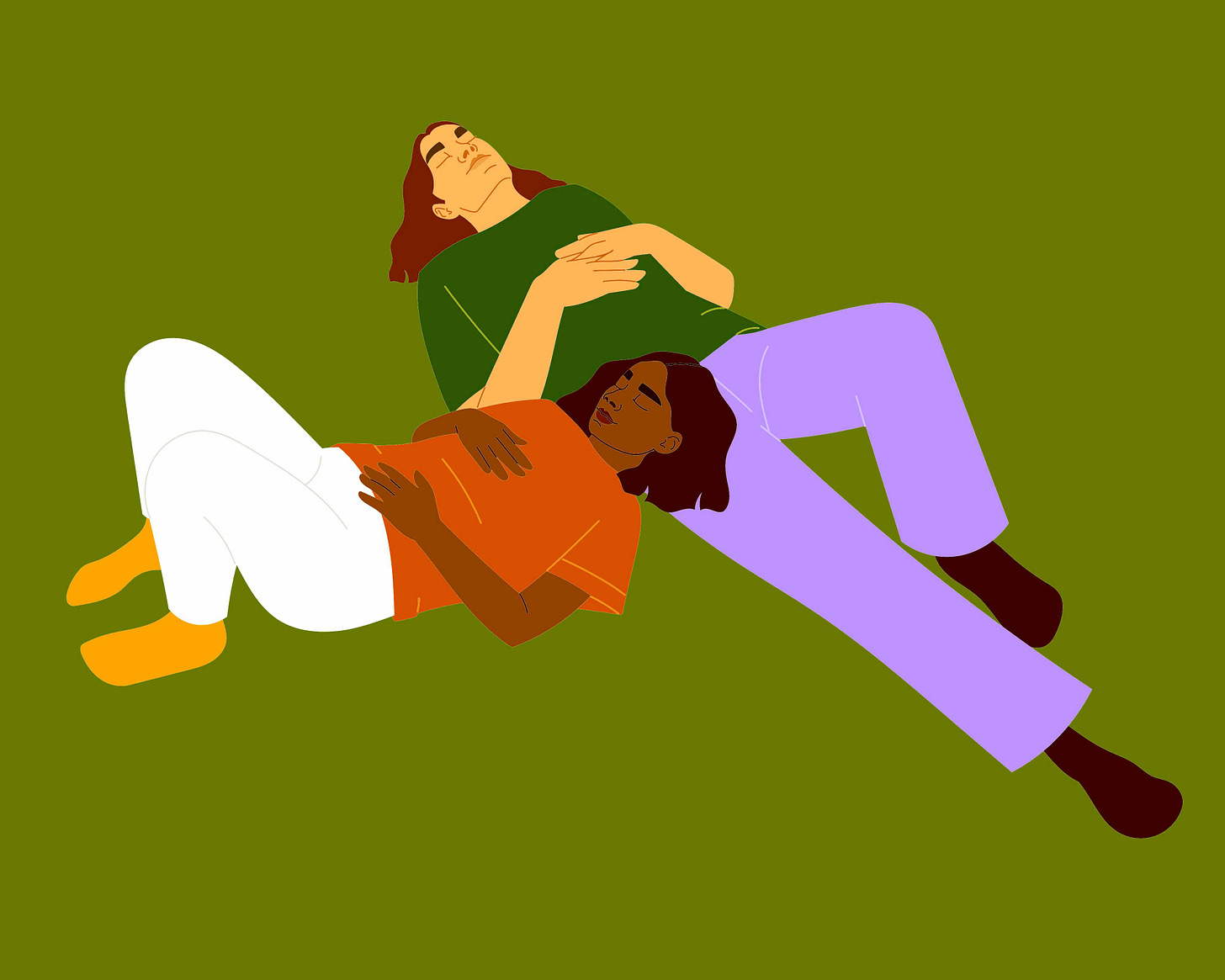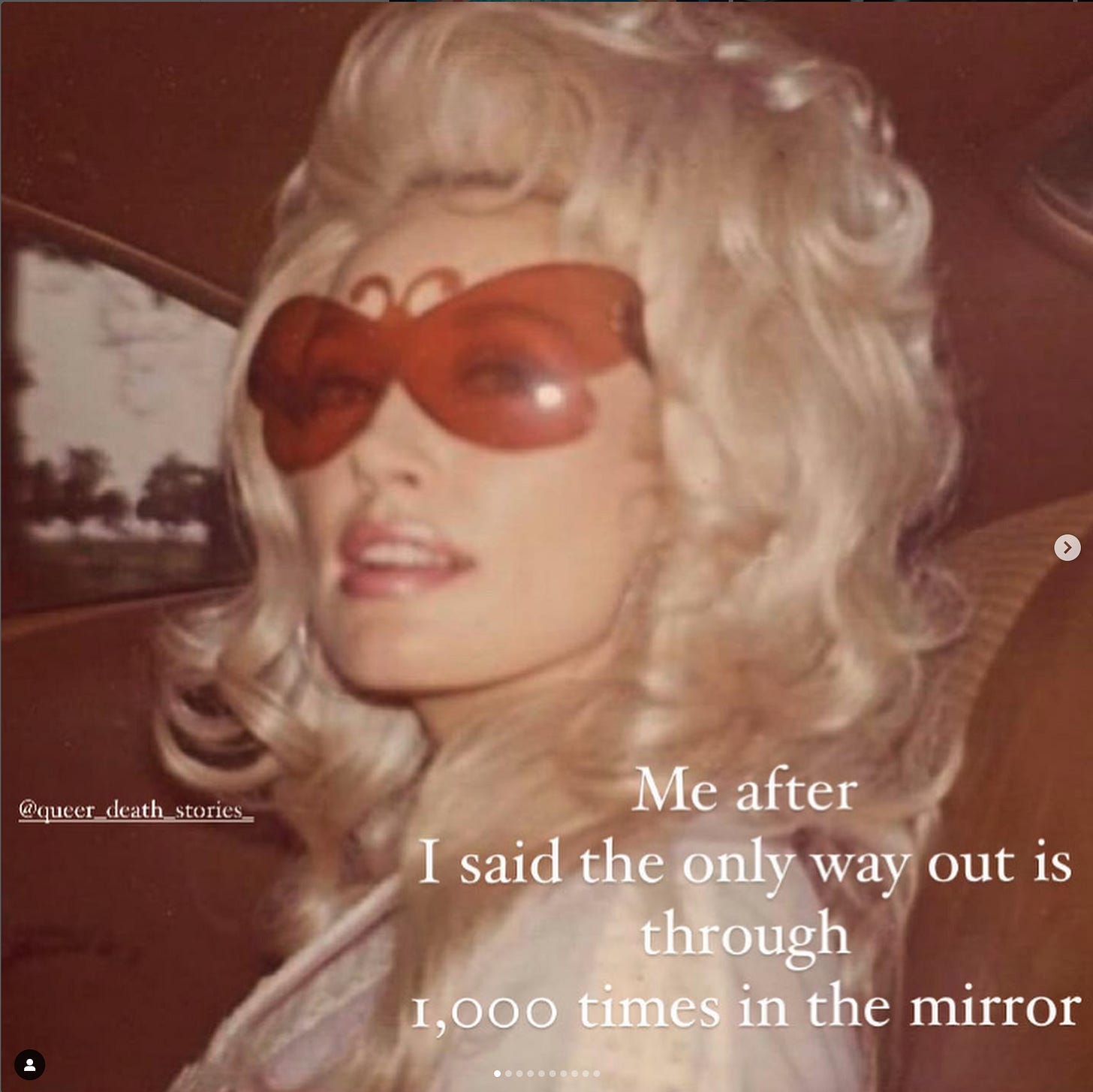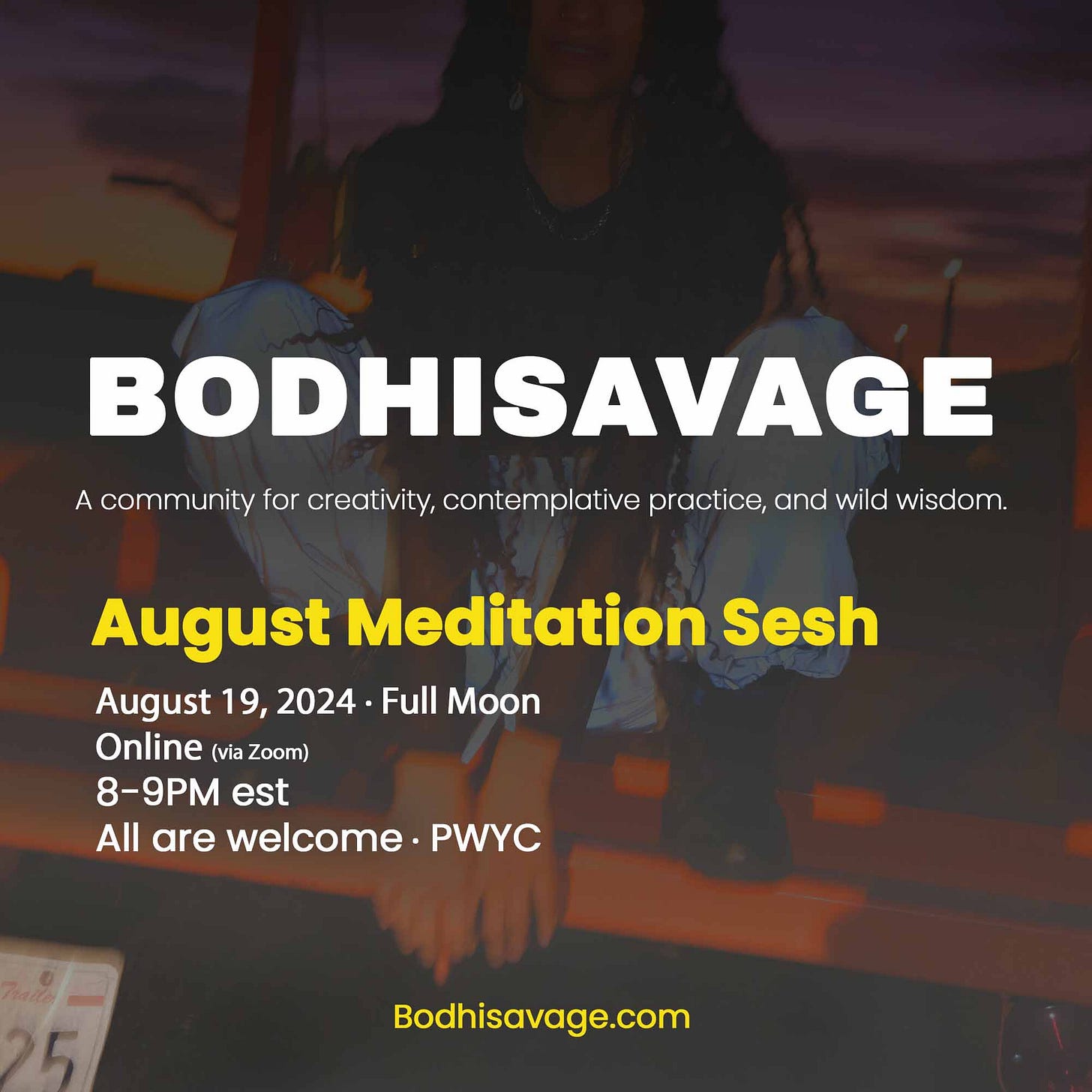Renunciation, but Make It Fun
What does "Renunciation" look like in a hyper-connected modern world.
Happy New Moon! And to my fellow Canadians, I hope you're enjoying the long weekend.

I just returned from teaching at the Consciousness Explorers Club summer retreat, where folx from all over gathered to practice being. The diversity was inspiring - from Buddhists to Hatha Yogis to Secular Mindfulnessers to Down-for-Anything Noobs. I thought a lot about what brings us together: the desire to ditch the dysfunctions of everyday life in favor of sanity. In other words, to explore renunciation.
I know—"renunciation" is literally the least sexy word in the contemplative canon. It reeks of asceticism and self-denial. It conjures images of shorn monks in drab robes swearing off sex, spice, and everything nice. And when I first came to contemplative practice, that’s exactly how I interpreted it: that eventually, I would have to give up all the colorful parts of my life in the pursuit of "enlightenment."
I realize now how hilariously simplistic that understanding was. Renunciation isn't a prescription for how to practice. It's an attitude that emerges from practice. As we go deeper, we start to come alive in such simple, playful ways that we don’t want to get our kicks from dysfunction anymore. We look around with exhaustion at the suffering of late-stage capitalism, whisper a defiant "fuck this," and go off in search of better ways of living.
For some, this search leads to a monastery and the more recognizable forms of renunciation. But for others, like the beautiful band of weirdos I spent the weekend with, it leads to things like non-sectarian practice, engaged service, and artful expression. We create bold new spaces that challenge the heteronormativity, neurotypicality, and colonialist ideals of mainstream culture. We practice inquiry and compassion to fuel our activism, our trauma work, and our resilience. For those of us who live in the middle of culture, renunciation looks a lot like intentional community.
At its core, renunciation is an abandonment of habits that create suffering. We could also call it (as Alan Wallace does) "going against the stream" — against the frenetic pace of consumerism and competition. Or "dropping out" (as Tenzin Bob Thurman puts it) of systems that contribute to insanity and divisiveness. How it ends up looking is unique to each of us. We non-monastics gotta find it by practicing in the world, through the world, and as lovers of the world.
Walking around the hushed halls of the retreat center this weekend, I felt a deliciously “fuck-the-system” kind of hope blossoming. People everywhere are seeking out contemplative practices, teachers, and communities at a rate never seen before. As they do, they’re stepping into forms of renunciation that are made for these times. The horrors persist, yes, but so too does human flourishing.
This month, I invite you to cultivate your own sense of "going against the stream", of "dropping out". What do you renounce? What practices and communities support that? Then join me and the Bodhisavage fam at the Full Moon meditation session, where we'll explore what this can look like on the cushion.
See you then!
August’s Live Meditation Session
TIME: August 19 @ 8-9 PM EST
DEETS: This month, we'll practice renunciation - or maybe we’ll call it swimming away from the stream, or dropping out, or “Being simple & rad in an unrad world.” Whatever we call it, it will soothe our frazzled nervous systems and bring us into alignment with a smoother, deeper, clearer way of being with each other.
COST: This session is open to errybody. Please consider paying what you can within your means.
That’s all for now!
You’ll hear from me again on the Full Moon 🌝
❤️ Tasha
(PS. In the meantime, you can join me & Jeff Warren on our weekly practice excursions over at The Mind Bod Adventure Pod!)







To all the beautiful weirdos! So true about renunciation emerging organically. Another way of saying this is you get more interested in simplifying!
When I first came to the Dharma, I remember thinking what a painful sacrifice it would be to become a Buddhist monastic. But then I began meeting them—from many different lineages and traditions over the years—and realized few felt they’d given up anything except attachments. Their freedom inspired me to look at renonciation in an entirely different way—just as you described — not giving anything up but rejecting that which limits, constricts, and pains. Many blessings 💜